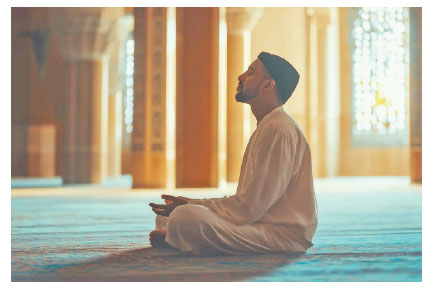
Allah (SWT) has created us, blessed us with everything we need and given us guidance. He has sent down Prophet Muhammad (PBUH) as His final Messenger with truth and wisdom to show us the best way of leading a life. Allah (SWT) says in the holy Quran: “There has certainly been for you in the Messenger of Allah an excellent pattern for anyone whose hope is in Allah and the Last Day and [who] remembers Allah often.” (Surah Al Ahzab: 21). We know that in the present days, there is much  confusion among people about how they should lead their everyday life. For example, how should they sleep and wake up? But for a Muslim, there should be no confusion. He should follow the Sunnah of the Prophet (PBUH) in every walk of life, which will help them attain peace and stay on the right path. Today, we will talk about Prophet Muhammad’s (PBUH) Sunnah of waking up from sleep, as doing it in the right way is very significant for everyone.
confusion among people about how they should lead their everyday life. For example, how should they sleep and wake up? But for a Muslim, there should be no confusion. He should follow the Sunnah of the Prophet (PBUH) in every walk of life, which will help them attain peace and stay on the right path. Today, we will talk about Prophet Muhammad’s (PBUH) Sunnah of waking up from sleep, as doing it in the right way is very significant for everyone.
Waking up in the last third of night is regarded as very important in Islam as this blessed time is a special opportunity to attain forgiveness of Almighty Allah and getting closer to Him. It was a common practice of our beloved Prophet (PBUH) to wake up in the last third part of the night. Ayeshah (Ra), the mother of believers, said, “He used to sleep early at night, and get up in the last part to pray...” (Sahih Bukhari). According to a Hadith, Allah (SWT) comes down to the lowest heaven, inviting believers to ask for what they need. Abu Hurayrah (Ra) narrated that the Messenger of Allah (PBUH) said, “Our Lord, may He be blessed and Exalted, comes down to the lowest heaven every night when the last third of the night is left, and He says: ‘Who will call upon Me, that I may answer him? Who will ask of Me, that I may give him? Who will ask Me for forgiveness, that I may forgive him?” (Sahih Bukhari).
When we open our eyes at dawn, it is a very significant moment in our life, because many people who fall asleep at night cannot open their eyes again in the next morning; they pass away in their sleep. Actually every morning brings us a new opportunity to live, do more good deeds and worship Allah more. So, waking up from sleep is a great blessing from Him. Reciting Duwa (supplication) is a best way to express gratitude to the Almighty Allah for giving another chance to worship Him. The Prophet (PBUH) used to recite a beautiful Duwa when he would wake up from sleep in the morning, which is: “‘Praise is to Allah, Who has given us life after taking it from us, and unto Him is the Resurrection).’” (Ibn Majah).
Many Muslims in our society are still unaware that it is an important Sunnah of our beloved Prophet (PBUH) to wipe the effects of sleep from the face after waking up. He used to wake up and wipe the effects of sleep from his face with hands. Abdullah Ibn Abbas (Ra) narrated that he stayed overnight in the house of Maimuna (Ra), his maternal aunt and one of the wives of the Prophet (PBUH). He said: “I lay on the bed (cushion transversely) while Allah's Messenger (PBUH) and his wife lay in the lengthwise direction of the cushion. Allah's Messenger (PBUH) slept till the middle of the night, either a bit before or a bit after it and then woke up, rubbing the traces of sleep off his face with his hands. .....” (Sahih Bukhari).
It is also beneficial to recite the last ten verses of Surah Al-e-Imran after waking up. These verses are filled with profound meanings and lessons. Especially the first of these verses (191st verse of the Surah) encourages Muslims to remember Allah while standing, sitting or lying down, and to reflect on the creation of the heavens and the earth as signs of Allah’s power and wisdom. Thus, reciting these verses first upon waking up at dawn helps one start the day with remembrance of Allah and spiritual nourishment. Abdullah Ibn Abbas (Ra) also informed that the Messenger of Allah (PBUH) woke up and began to wipe the sleep from his face with both his hands and then recited the last ten verses of Surah Al-`Imran...’ (Sahih Bukhari).
_____________________________________
The writer is Khatib of Baitush Shafiq Mosque and Principal of Baitul Hikmah Academy, Gazipur

